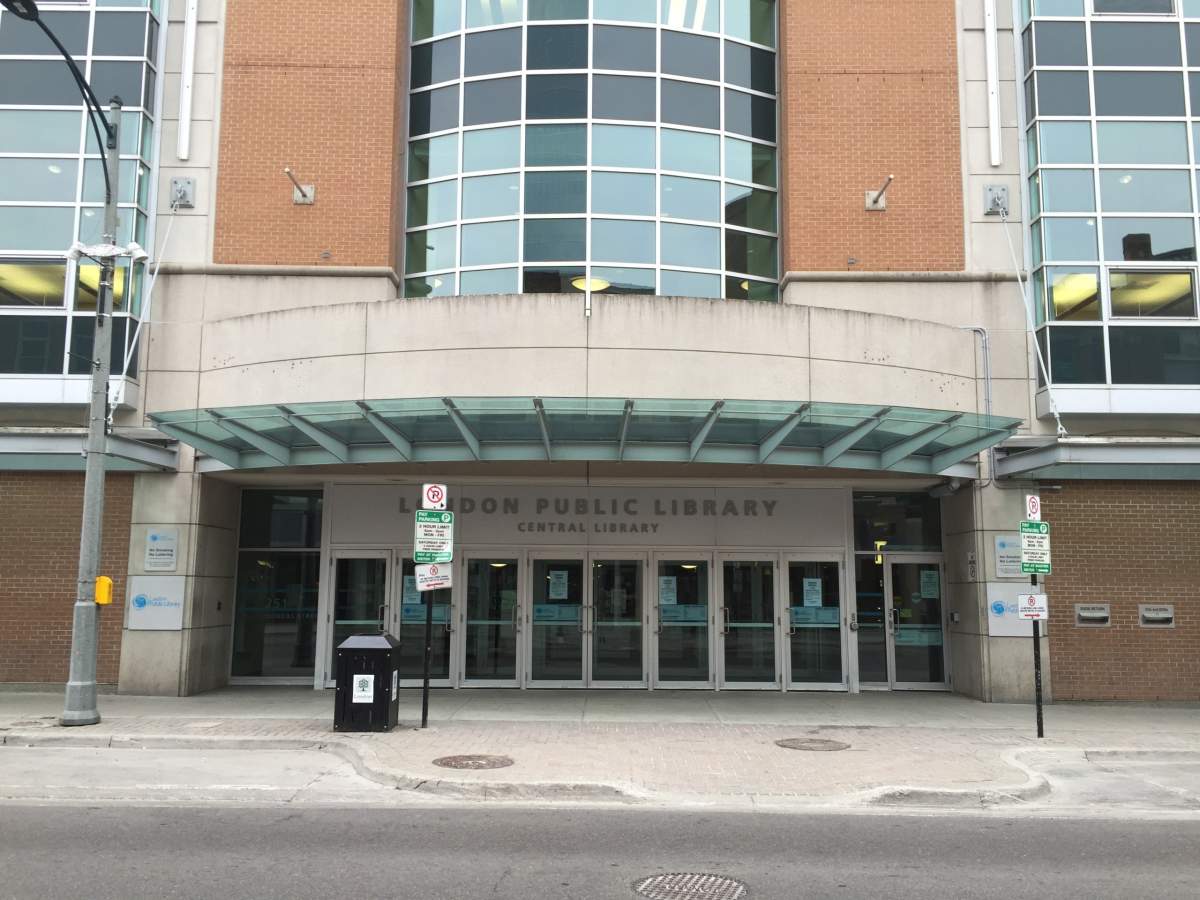As libraries across Canada see an uptick in violence, the London Public Library is taking a compassion-first approach through a dedicated social worker for the downtown branch.

The random acts of violence happening on our streets and in our transit systems in cities across Canada are also making their way into public libraries, with branches of all sizes reporting a rise in verbal and physical violence, Global News’ The New Reality reported earlier this week.
In London, a social worker has been brought in full-time at the LPL’s Central branch in the city’s core. When Elizabeth Sutter began working at the library in 2021, community wellness workers were scheduled at the library on a weekly basis. As of June 2022, a social worker has been working full-time.
Sutter, manager of customer services and branch operations, said since a social worker began full-time in June 2022, she has “definitely” seen an impact.
“What we learned the most through this is how important relationship-building is.”
Experts say libraries are a reflection of the world around them. And society’s problems are finding their way inside their doors.
With cuts to social services often vulnerable people have nowhere to turn. Public libraries, by their very nature, are committed to being welcoming and inclusive.
“People are coming into the library and they have really significant needs,” says Siobhan Stevenson, a professor with the Faculty of Information at the University of Toronto.
“There are all kinds of social crises, humanitarian crises, in our cities: homelessness, the opioid epidemic, random acts of violence … a social safety net that’s been so diminished,” she told Global News’ The New Reality.

Sutter said even before the onset of the COVID-19 pandemic, it was evident that there was a “growing vulnerable population” that needed more support than librarians were trained to provide.
“I’ve seen people not want to go to the hospital when they’ve had an infection in their leg because they felt the hospitals weren’t kind to them before,” she said.

Get daily National news
“Having a social worker here from 9 to 5, Monday to Friday, really allows for that relationship-building because sometimes it takes three, four or five meetings with someone to get them where they need to be.”
- Porter flight from Edmonton loses traction, slides off taxiway at Hamilton airport
- Coffee-hockey combo — or breakfast beers? — for bleary-eyed Olympic fans
- Canada warns First Nations people to carry passport when crossing U.S. border
- Canada’s incoming top doctor says restoring public trust a top priority
In addition to the social worker, both librarians and security staff have received training in a compassion-first approach.
“We’re really impressed with the guards we have and how they care for people. Sometimes even as they’re escorting people out, they’re saying, ‘how’s your day been?’ or ‘How’s things going?’”
She said the security guards will also let the case manager know that there’s someone they think she may want to check on.
Still, sometimes police are called in, for example when someone who has been banned for violating the rules of conduct trespasses or when incidents are “beyond security’s means to deal with” safely.
While Sutter has only been in the downtown branch since August 2021, she attended Western University for her Masters of Library Science and said that she’s noticed a change in the core since that time.
She did not have figures, but said anecdotally that there has been an increase in those experiencing housing insecurity, mental health issues and drug addiction.
When asked if librarians feel safe at work, she said she wouldn’t want to answer from them but added “I know they value the security guard and they value the relationship that security has with the case manager.”
“I think it’s hard for staff to understand what’s happening in the community around them. For many staff, this is the city they love and they grew up in and they want what’s best for it. And then there’s concerns when they see people on the street doing drugs, or homelessness.”
Sutter said there is room for everyone to build compassion.
“These are individuals who may or may not have had trauma as children. We don’t know their stories, but whatever got them to this point is a hard story,” she said.
“We need to help people through the tough times in their lives and not look the other way.”
— With files from Global News’ Lis Travers and Melissa Ridgen








Comments
Want to discuss? Please read our Commenting Policy first.